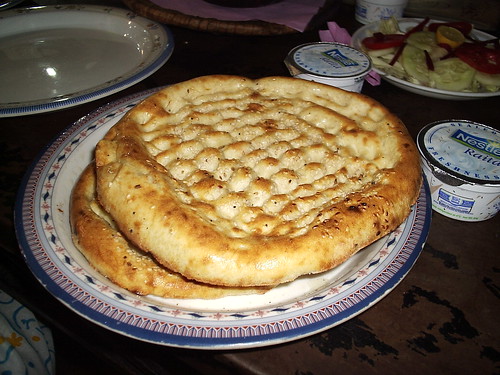By Azam Gill
Published in the Express Tribune, a New York Times affiliate
![[IMG]](https://i0.wp.com/nativepakistan.com/wp-content/uploads/Bannu-Photos-The-newly-constructed-Church-of-the-Holy-Name-at-Bannu-Pictures-of-Bannu.jpg)
“Pakistan’s Christians will now be respectably called ‘Masihi.’ Pakistan’s National Database and Registration Authority (NADRA) has issued orders regarding use of Masihi for Christians instead of Esaayi, in the column for Religion.”
Pakistani Christians had been seeking rebranding for quite some time.
“The Urdu ‘Isai’ (derived from ‘Esa’, the Arabic word for ‘Jesus’ used in the Qur’an) now carries strong overtones (of) ‘unclean’ demeaning occupations. This use of language feeds the narrative which makes Christians feel like second-class citizens in today’s society. On October 8, 2015 in Lahore, more than 500 Muslim students took an oath that they would not call Christians ‘Esaayi,’ but would use the word ‘Masihi’ themselves.”
These noble gestural efforts from all concerned are commendable in their own right. But just treating symptoms allows the disease to thrive.
And the disease here is the association of Christians with scavenging sanitary work which gained them the insulting designation of chuhras (C-word).
The real objection of Pakistani Christians to being called Isai is that the word has, over time, become synonymous with the degrading C-word. After all, Isai, referring to Hazrat Isa/Al-Masih, constantly evokes Muslim-Christian commonality which, in these troubled times, should help shield Christians against violence. At the end of the day, when Pakistani Christians are bombed, their Muslim neighbours’ goodwill is of inestimable value.
Yet, even though Pakistani Christians are well aware that Isai puts them in an advantageous position within communal hostility, they are strongly focused on burying the word (insultingly pronounced Ssa’ai in the Punjab), for having become a de facto replacement for the pejorative C-word. So, while the brand name is a variable, the content it projects is invariable and until that content changes, it will vitiate each new brand name.
When the number of Christians, fuelled by circumstances and blatant discriminatory practices, into employment as sanitary workers decreases the word Isai will become as respectable as Muslim, Sikh, Hindu, Jew or Parsee. Dedicated educational, vocational and affirmative action programs, spearheaded by Christians but patronised by powerful, wealthy and enlightened Muslims will go a long way in achieving the goal of decreasing the number of Christians employed as scavengers and sanitary workers.
Very few Muslims realise that Christian hymns and hymn singing to musical orchestras in churches and prayer meetings have resulted in generations of musicians and lyricists invisible to their Muslim neighbours, their talent drowned in the open drains outside the hovels of their bastis.
This is a gold mine hidden in plain sight for talent scouts of the entertainment industry under the aegis of Pakistan’s business-savvy Muslim elite.
The United States Civil Rights movement could never have succeeded without the support and participation of enlightened Whites. Christian community leaders should concentrate on lobbying the Muslim leadership to refine and ensure the implementation of educational, vocational and affirmative action.
History might be replete with examples of communal rebranding, but in recent times, renaming of communities resulted in the United States’ exportable semantic cesspit. As Red Indians evolved into American Indians, Original Americans and finally Native Americans, Blacks finally became African-Americans while the Jews stayed Jews and Indian Americans are quite pleased with themselves.
The rebranding succeeded since it offered a cop-out – white America and the successful middle class of the community concerned could mitigate their commitment to changing the situation and toss a crumb as a substitute for positive action.
Cute.
The Jews never bothered to reinvent themselves, realising that the cause of persecution is not the name but the situational components. The unchanged word Jew has come a long way from the Shakespearean Shylock to a signifier of wealth, power, status, culture and reliability.
Despite their complaints of Islamophobia, no Muslim has asked to be called anything other than a Muslim and would never be fooled by a semantic hand-out!
With minorities suffering direct persecution, it is irresponsible to let the majority community off the hook by asking for superficial concessions. The focus should be on fundamental changes.
Minority leaders should maintain moral pressure to change the situation and constantly remind the majority of how well they are treated when they find themselves in a minority in more enlightened spaces.
Rebranding a deteriorating product offers middle-class Christians and their supporters a cosy cop-out and good short-term press for the politicians involved in this undersized game.
“What’s in a name? That which we call a rose – By any other name would smell as sweet.” Romeo and Juliet (II, ii, 1-2).
“And that which we call a cesspool – By any other name would stink as much – As did the state of Denmark – When foul play spiked its rightful king.”





















